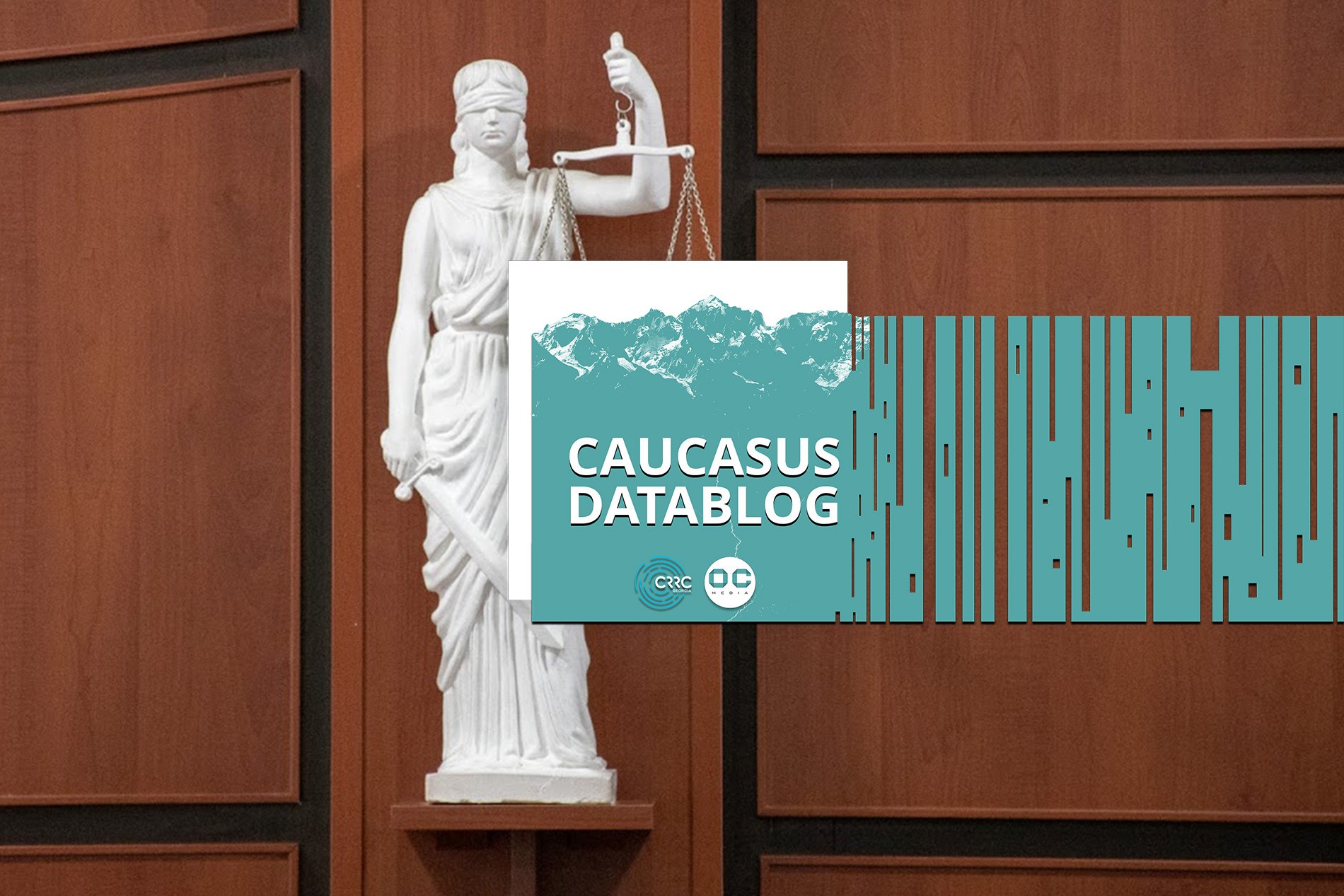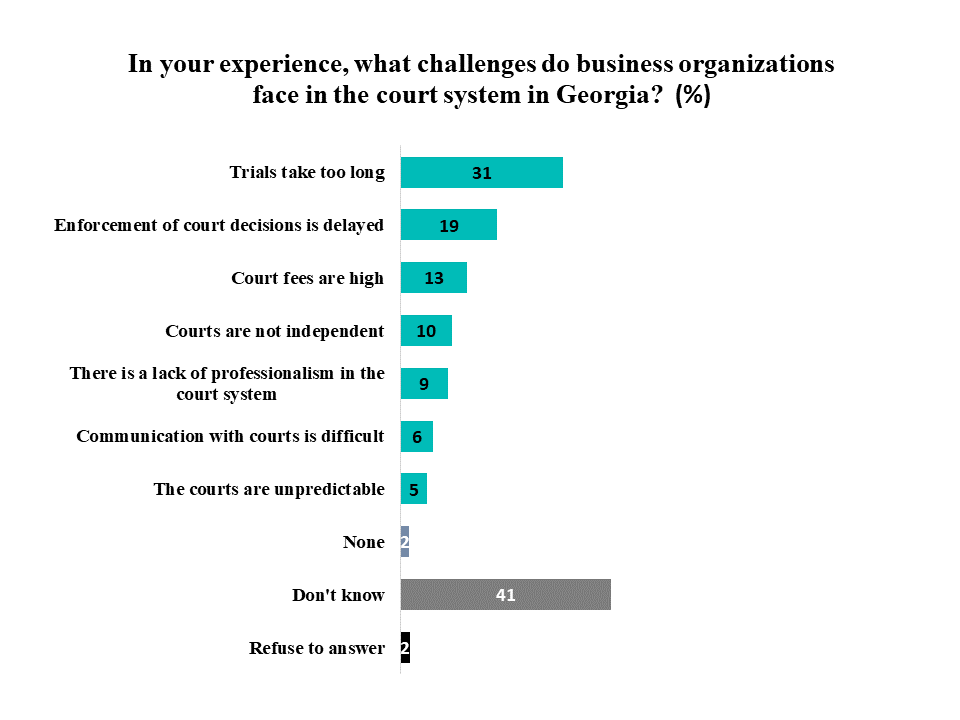
In a series of studies, CRRC Georgia spoke with lawyers, judges, and business owners about the problems they perceive in the Georgian court system.
Over the last few years, the court system in Georgia has been subject to criticism from politicians, civil society, and international bodies. The criticism mostly focused on the independence of judges, the selection and appointment of members of the Supreme Court, legislative shortcomings, access to court decisions, and the quality of court decisions, among a range of other issues. Prior to this, public trust in courts had already been low relative to other institutions, with only 17% of the public reporting they trusted the courts in 2019.
Studies CRRC Georgia published in 2021 suggest that the main issue business people and legal professionals see in the court system is justice not delivered in a timely fashion. Yet, they view the issues in the court system as symptoms of the broader problems that other actors criticise.
When asked about the main challenges businesses face in the courts, half of businesses named time-related issues. The length of trials was named by 31% and delayed enforcement of court decisions was named by 19%. Relatively few, 10%, felt that the lack of independence of courts was an issue.

The long timelines for court trials and enforcement of decisions were also discussed extensively in qualitative research. Businesses reported that trials can take years to conclude. Even when they do, enforcement of decisions takes so long that inflation and currency fluctuations can eat away at the value of settlements. As a result, some business people report that decisions settled in their favour, ‘merely stayed on paper’. Knowing that inflation and currency fluctuations will ultimately reduce the value of settlements, some businesses report that there is a strong incentive for those they are suing to delay trials and enforcement.
The results were quite similar in a study of legal professionals’ attitudes that CRRC Georgia conducted in the spring and summer of 2021. Lawyers highlighted that court hearings and the issuance of rulings took longer than the limits set out in legislation. An NGO lawyer from Tbilisi told CRRC: ‘It is a fact that the court system cannot complete almost any case within the legally set norms […] often resolution of cases is so late that any interest towards the case is lost and it is impossible to restore the violated right’.
Judges are aware of the problem. When discussing the long timelines around cases, they blamed heavy caseloads. They further noted that this also resulted in lower-quality decisions. ‘The increase in the number of cases impacts quality’, a judge working in the criminal courts told CRRC. ‘Sometimes quality is damaged, sometimes [timelines]. Case trials are not finished on time.’
These were not the only issues with the judiciary that study participants mentioned. Lawyers mentioned issues around a dearth of common practice and lack of independence among investigators. While judges felt that low public trust was a problem for the court system as well as insufficient social guarantees for judges after retirement.
The above does not demonstrate that a lack of independence and opaque selection procedures for judges are not a problem. Rather, lawyers tended to suggest that most of the issues noted above were symptoms of the courts’ fundamental problems rather than the disease itself. They reported that without addressing the root causes, including how appointments throughout the judiciary are made, as well as case distribution rules, the judiciary is likely to continue functioning at sub-optimal levels.
The views presented in the article are the author’s alone, and do not necessarily reflect the views of CRRC Georgia, USAID, East-West Management Institute, or any related entity.








